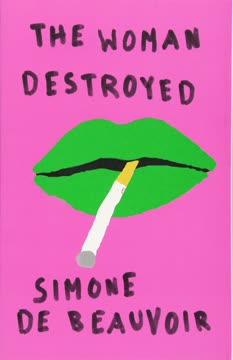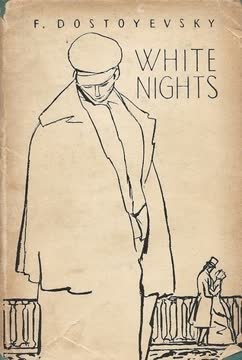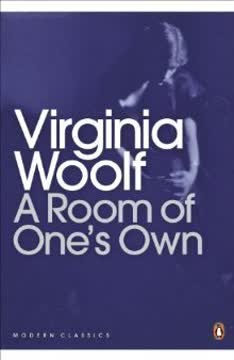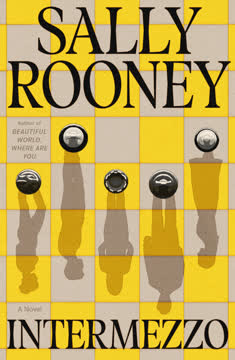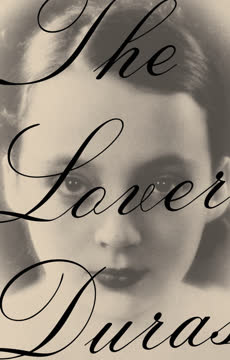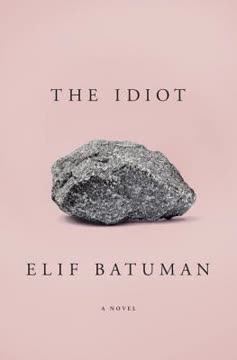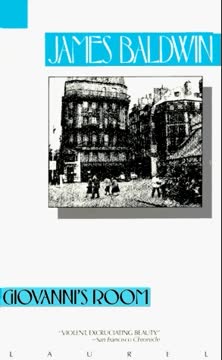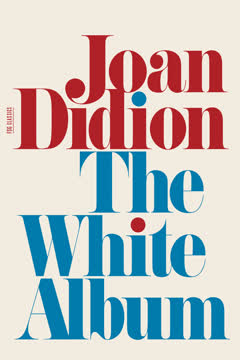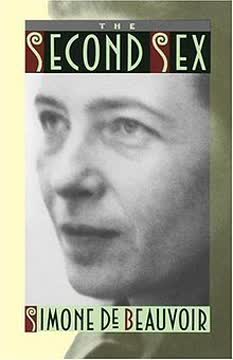Plot Summary
Parisian Mornings, Subtle Shifts
In the gentle light of a Parisian morning, a retired woman reflects on her life with her husband, André. Their days are filled with familiar rituals—tea, shared glances, and the comfort of routine. Yet beneath the surface, she senses a subtle shift: André is more withdrawn, less engaged with the world, and increasingly preoccupied with his own aging and professional stagnation. The city outside changes, but so does the landscape of their marriage. The woman clings to optimism, believing in the resilience of their bond, but the cracks are beginning to show. The world, once vibrant and full of promise, now feels tinged with nostalgia and loss, as if time itself is quietly eroding the foundations of her happiness.
Family Tensions Unveiled
The return of their son, Philippe, and his wife, Irène, brings underlying family tensions to the fore. Philippe announces his decision to leave academia for a more lucrative, less idealistic career, influenced by Irène and her bourgeois values. The mother is devastated, feeling her life's work—raising an intellectual, principled son—has been undone. André, more detached, accepts Philippe's choice with a philosophical resignation that infuriates his wife. The generational divide is stark: the parents' ideals clash with the pragmatic ambitions of their son and daughter-in-law. The mother's sense of purpose and identity, so long entwined with Philippe's path, is shaken, leaving her adrift and questioning her own relevance.
The Son's Departure
Philippe's final decision to pursue a government job, orchestrated by Irène's family, marks a painful rupture. The mother's grief is profound—she feels not only abandoned but betrayed, as if her son has chosen another world over the one she built for him. The loss is not just of a child, but of a shared intellectual and emotional alliance. André's calm acceptance only deepens her isolation. The apartment, once filled with Philippe's presence, now feels empty and haunted by memories. The mother's identity, so long anchored in motherhood and intellectual partnership, begins to unravel, leaving her to confront the void left by her son's departure.
Marital Distance Grows
As the shock of Philippe's departure settles, the woman turns to André for comfort, only to find him increasingly distant. Their conversations, once lively and intimate, become strained and perfunctory. André's preoccupation with his own aging and professional decline mirrors her own anxieties, but instead of drawing them together, it drives them further apart. Attempts at reconciliation—shared outings, nostalgic trips—fail to bridge the gap. The couple's once-solid partnership is eroded by unspoken resentments, misunderstandings, and the slow, relentless passage of time. The woman feels herself becoming invisible, her needs and desires subsumed by André's indifference and her own growing sense of futility.
The Weight of Aging
The realities of aging become inescapable. Physical decline, professional irrelevance, and the loss of sexual intimacy weigh heavily on both partners. The woman, once vibrant and full of purpose, now feels herself fading—her body betrays her, her work stagnates, and her relationships falter. André's resignation to old age contrasts with her desperate clinging to hope and meaning. The world outside continues to change, indifferent to their struggles. The woman's attempts to find solace in memories or small pleasures are undermined by the relentless advance of time, which strips away not only her youth but also her sense of self-worth and belonging.
The Void of Achievement
The woman's latest book, once a source of pride, is met with indifference and criticism. Friends and colleagues, even her trusted confidante Martine, confirm her worst fears: she has nothing new to say. The realization that her intellectual life may be over is devastating. She rereads her earlier works, only to find them repetitive and stale. The emptiness she feels is not just professional but existential—without her work, her children, or her husband's love, what remains? The future stretches out as a barren wasteland, and the past offers little comfort. The woman is forced to confront the possibility that her life's meaning has evaporated, leaving her with nothing but the slow approach of death.
The Monologue of Despair
In a searing, stream-of-consciousness monologue, another woman—Murielle—lays bare her rage, loneliness, and sense of injustice. Abandoned by her husband, estranged from her children, and isolated from her family, she rails against the world's indifference and hypocrisy. Her thoughts spiral through memories of childhood neglect, failed relationships, and the suicide of her daughter. The monologue is a torrent of bitterness, self-pity, and defiance, exposing the raw nerve of a woman destroyed by loss and rejection. Her desperate need for love and recognition is matched only by her inability to find solace or forgiveness, either from others or herself.
The Saltworks Solitude
Monique, the third protagonist, finds herself alone at the deserted saltworks, relishing a rare sense of freedom and self-possession. With her husband Maurice away and her daughters grown, she briefly rediscovers the pleasures of solitude and self-reflection. The world feels open and full of possibility, and she dreams of a new phase of life focused on her own desires. Yet this interlude is fragile—her daughter's illness and the demands of others soon intrude, pulling her back into old patterns of care and self-sacrifice. The saltworks become a symbol of both the potential and the limitations of solitude, a fleeting respite before the storm.
The Husband's Confession
Maurice's late-night confession of an affair with Noëllie, a younger, ambitious attorney, detonates Monique's world. The revelation is both shocking and, in retrospect, inevitable—she realizes she had sensed the distance growing between them. Maurice's candor is cold comfort; the betrayal is not just sexual but existential, undermining the very foundation of their marriage. Monique is forced to confront the limits of her own understanding, the fragility of trust, and the painful reality that love, once lost, cannot be reclaimed by will alone. The confession marks the beginning of a long, agonizing unraveling of self and relationship.
The Rival Emerges
Noëllie, the other woman, becomes a constant, corrosive presence in Monique's life. She is everything Monique is not—youthful, ambitious, socially adept—and her relationship with Maurice is not a passing fling but a serious, ongoing affair. Monique's attempts to compete—by being cheerful, understanding, or even by seeking her own affairs—only deepen her sense of inadequacy and humiliation. Friends offer advice, but nothing can alter the fundamental imbalance: Maurice is increasingly drawn to Noëllie, and Monique is left to watch, powerless, as her marriage and identity are dismantled piece by piece.
The Battle for Love
Monique oscillates between confrontation and accommodation, trying every possible strategy to win back Maurice's affection. She endures the indignity of sharing him, hoping that patience and understanding will eventually restore their bond. She seeks validation from friends, from her daughters, even from graphologists and psychiatrists, but nothing can fill the growing void. Each concession only emboldens Maurice and Noëllie, while Monique's self-respect erodes. The battle for love becomes a battle for survival, as Monique's sense of self is battered by rejection, jealousy, and the relentless comparison to her rival.
The Spiral of Jealousy
Jealousy becomes an all-consuming force, distorting Monique's perceptions and poisoning her interactions. She spies on Maurice, interrogates friends, and obsesses over every detail of his relationship with Noëllie. The boundaries between love, hate, and self-loathing blur. Monique's world contracts to a single, agonizing focus: the loss of her husband's love. Her attempts to find meaning or agency—through work, self-improvement, or even travel—are undermined by the persistent ache of betrayal. The spiral of jealousy leads not to resolution but to a deeper, more intractable despair.
The Collapse of Self
As Maurice prepares to leave, Monique's sense of self collapses. The apartment, once a sanctuary, becomes a mausoleum of lost happiness. She is haunted by memories, unable to distinguish between past and present, truth and illusion. Her daughters, friends, and even her psychiatrist are powerless to help. The loss of love is not just a personal tragedy but an existential annihilation—Monique no longer knows who she is or what she believes. The future is a closed door, and she stands on the threshold, paralyzed by fear and uncertainty.
The Futility of Advice
Throughout her ordeal, Monique is bombarded with advice—from friends, family, and professionals. Some urge her to fight, others to let go, still others to rebuild her life independently. Yet none of it penetrates the core of her suffering. The pain of abandonment is not rational, and no strategy or perspective can mitigate the loss of meaning and connection. The well-intentioned counsel of others only highlights Monique's isolation, as she realizes that her experience is ultimately incommunicable and unshareable. The futility of advice becomes another layer of her despair.
The Final Ultimatum
Driven to the brink, Monique issues an ultimatum: Maurice must choose between her and Noëllie. The confrontation is explosive, dredging up years of resentment, disappointment, and mutual blame. Maurice, exhausted and ambivalent, chooses separation. The decision is both a relief and a devastation—relief from the agony of uncertainty, devastation at the finality of loss. Monique is left to reckon with the consequences of her demand, realizing too late that there is no victory in such a battle, only the ashes of what once was.
The Descent into Isolation
With Maurice gone, Monique descends into a profound isolation. The routines of daily life become insurmountable obstacles; the apartment is a prison of memory and regret. Friends and family, once sources of comfort, now seem distant and ineffectual. Monique's attempts at self-reconstruction—through therapy, work, or travel—are half-hearted and ultimately futile. The world outside continues, indifferent to her suffering. The descent into isolation is not just physical but spiritual, as Monique loses faith in herself, in love, and in the possibility of renewal.
The Search for Meaning
In the aftermath of loss, Monique embarks on a desperate search for meaning. She interrogates her past, seeking explanations for her failure—was she too demanding, too passive, not enough? She questions friends, her daughters, even her own memories, but finds no satisfying answers. The standards and values that once guided her life now seem hollow and arbitrary. The search for meaning becomes a search for self, but the self has been shattered beyond recognition. The only certainty is uncertainty, the only truth is the absence of truth.
The Door to the Future
In the final, haunting image, Monique sits alone in her empty apartment, staring at the closed doors that once led to love, partnership, and family. The future is an unknown, terrifying space—she is on the threshold, unable to move forward, unable to return. The past is irretrievable, the present unbearable, and the future a source of dread. Yet even in this paralysis, there is a flicker of life—a recognition that, however diminished, she must go on. The door will open, and she will step through, alone, into whatever comes next.
Characters
The Narrator (The Age of Discretion)
A retired academic and writer, the narrator is a woman whose identity is deeply entwined with her intellectual achievements, her marriage to André, and her role as mother to Philippe. She is introspective, fiercely principled, and emotionally intense, yet increasingly vulnerable to the ravages of time, loss, and change. Her relationship with André is both a source of comfort and pain, as his growing detachment mirrors her own fears of irrelevance and obsolescence. Her devotion to Philippe is possessive and idealistic, leading to profound grief when he chooses a different path. Over the course of the narrative, she is forced to confront the limits of her optimism, the fragility of her relationships, and the existential void that opens when her sources of meaning are stripped away.
André
André is the narrator's husband, a once-brilliant scientist now facing the decline of his creative powers and the onset of old age. He is rational, compassionate, and politically engaged, but increasingly withdrawn and melancholic. His acceptance of aging and change contrasts sharply with his wife's resistance, creating a gulf between them. André's relationship with Philippe is marked by ambivalence and disappointment, and his interactions with his wife oscillate between tenderness and detachment. He embodies the stoic acceptance of life's limitations, but his resignation is tinged with sadness and a sense of loss.
Philippe
Philippe is the narrator's son, a young man caught between the ideals of his parents and the pragmatic demands of his wife and in-laws. Sensitive, intelligent, but easily influenced, Philippe ultimately chooses security and social advancement over the intellectual and moral path his mother envisioned for him. His decision is both a personal betrayal and a reflection of broader generational shifts. Philippe's relationship with his mother is fraught with expectation, disappointment, and unresolved longing, while his marriage to Irène represents a break with the past and an embrace of a different set of values.
Irène
Irène is Philippe's wife, a modern, practical woman whose priorities—money, status, and social success—clash with the narrator's ideals. She is poised, fashionable, and emotionally guarded, often serving as the mouthpiece for a new, more materialistic generation. Irène's influence over Philippe is profound, and her presence accelerates the family's fragmentation. To the narrator, Irène is both a rival and a symbol of everything she fears and despises about contemporary society.
Monique (The Woman Destroyed)
Monique is the protagonist of the titular novella, a woman whose life has been defined by her marriage to Maurice and her role as mother. She is nurturing, self-sacrificing, and deeply invested in the happiness of others, often at the expense of her own needs. When Maurice confesses his affair, Monique's world collapses—her sense of self, her values, and her very identity are called into question. Her psychological journey is one of disintegration, as she oscillates between hope, despair, jealousy, and self-recrimination. Monique's struggle is not just with her husband's betrayal, but with the existential void that opens when love and purpose are lost.
Maurice
Maurice is Monique's husband, a successful doctor whose midlife crisis leads him into an affair with Noëllie. He is intelligent, ambitious, and emotionally complex, torn between his attachment to Monique and his infatuation with Noëllie. Maurice's confessions are marked by both candor and evasiveness, as he seeks to justify his actions while minimizing their impact. His inability to choose decisively or to fully empathize with Monique's suffering exacerbates her pain. Maurice embodies the contradictions of modern masculinity—yearning for novelty and freedom, yet burdened by guilt and responsibility.
Noëllie
Noëllie is Maurice's lover, a younger, ambitious attorney who represents everything Monique is not—youthful, independent, socially adept, and unapologetically self-interested. She is both a real person and a projection of Monique's deepest insecurities. Noëllie's relationship with Maurice is not just a sexual affair but a challenge to Monique's entire way of being. Her presence forces Monique to confront her own limitations, her aging, and the fragility of love. Noëllie is both a catalyst for change and a symbol of the inexorable passage of time.
Murielle (The Monologue)
Murielle is the protagonist of the second novella, a woman consumed by bitterness, loneliness, and a sense of injustice. Her monologue is a torrent of anger, self-pity, and accusation, directed at her family, her ex-husband, her children, and the world at large. Murielle's psychological landscape is one of chaos and despair, shaped by childhood neglect, failed relationships, and the suicide of her daughter. She is both victim and perpetrator, unable to forgive or to be forgiven. Her voice is unfiltered, exposing the raw nerve of a woman destroyed by loss and rejection.
Lucienne
Lucienne is Monique's younger daughter, a brilliant and independent young woman who leaves home to pursue her own path in America. Her relationship with Monique is complex—marked by both love and a need for distance. Lucienne's choices reflect the changing roles and expectations of women, as well as the generational tensions that run through the narrative. She serves as both a source of hope and a reminder of what Monique has lost.
Isabelle
Isabelle is Monique's closest friend, a confidante who offers advice, support, and a contrasting perspective on marriage and fidelity. She is pragmatic, emotionally intelligent, and less idealistic than Monique, having weathered her own marital challenges. Isabelle's counsel is well-intentioned but ultimately limited—she cannot save Monique from her own suffering, but she provides a necessary anchor in a world that is rapidly coming undone.
Plot Devices
Fragmented Narrative and Multiple Perspectives
De Beauvoir structures the book as three distinct novellas, each centered on a different woman at a crisis point. The fragmented narrative allows for a multifaceted exploration of aging, love, loss, and identity. Each story is told from a deeply subjective perspective—through diary entries, monologue, or close third-person narration—immersing the reader in the protagonist's psychological reality. The use of multiple voices and forms (including the raw, unpunctuated monologue of Murielle) underscores the diversity and universality of female suffering. The stories echo and refract one another, creating a tapestry of experience that is both intensely personal and broadly representative.
Foreshadowing and Recurring Motifs
Throughout the book, de Beauvoir employs foreshadowing and recurring motifs—such as the passage of time, the changing cityscape, and the motif of closed doors—to signal impending loss and transformation. The early signs of marital distance, professional stagnation, and generational conflict are woven into the fabric of daily life, only to erupt into crisis later. Objects (like the family car, the apartment, or a bouquet of flowers) become charged with symbolic meaning, representing both the comforts and the constraints of domestic life. The motif of the door—closed, opening, or remaining shut—serves as a powerful metaphor for the thresholds the characters must cross, willingly or not.
Psychological Realism and Interior Monologue
De Beauvoir's narrative is marked by a relentless psychological realism, exposing the inner workings of her characters' minds. The use of diary entries and monologue allows for an unfiltered exploration of thought, emotion, and self-deception. The protagonists' attempts to rationalize, justify, or deny their suffering are laid bare, creating a sense of intimacy and vulnerability. The narrative structure mirrors the characters' descent into confusion and despair, blurring the boundaries between past and present, reality and illusion.
Thematic Juxtaposition and Irony
The book juxtaposes ideals and realities, youth and age, hope and resignation. The irony of the protagonists' situations—devoted wives abandoned, loving mothers rejected, accomplished women rendered obsolete—serves to critique societal expectations and the limitations of personal agency. The tension between the desire for control and the inevitability of change is a constant undercurrent, lending the narrative both poignancy and philosophical depth.
Analysis
Simone de Beauvoir's The Woman Destroyed is a profound meditation on the fragility of identity, the inexorable passage of time, and the existential crises that confront women as they age. Through the intertwined stories of three women—each facing the collapse of love, purpose, or self—de Beauvoir exposes the deep psychological wounds inflicted by societal expectations, changing roles, and the loss of connection. The book is not merely a chronicle of suffering, but a searing critique of the myths of romantic love, maternal fulfillment, and feminine self-sacrifice. De Beauvoir's characters are intelligent, passionate, and self-aware, yet they are undone by forces both internal and external—by their own illusions, by the indifference of loved ones, and by the relentless march of time. The narrative's unflinching honesty, psychological depth, and formal innovation make it a landmark in feminist literature, offering a timeless exploration of what it means to be a woman facing the end of youth, the betrayal of love, and the daunting prospect of forging a new self from the ruins of the old. The ultimate lesson is both sobering and liberating: survival may not bring happiness or closure, but it demands courage, lucidity, and the willingness to confront the unknown.
Last updated:
Review Summary
The Woman Destroyed is a collection of three stories exploring women's experiences with aging, loneliness, and marital betrayal. Readers praise de Beauvoir's insightful portrayal of women's inner lives and emotional struggles. The stories depict women facing crises in their relationships and identities, often feeling lost or abandoned. While some find the characters unlikeable, many appreciate the raw, honest depiction of women's struggles. The book's exploration of female dependency, societal expectations, and the search for self-identity resonates with readers, despite being written in the 1960s.
Similar Books
Download PDF
Download EPUB
.epub digital book format is ideal for reading ebooks on phones, tablets, and e-readers.
